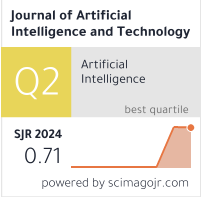Artificial Intelligence in Second Language Acquisition: Enhancing Teacher Self-Efficacy Through Tacit and Explicit Knowledge Sharing
DOI:
https://doi.org/10.37965/jait.2025.0812Keywords:
academic self-efficacy, artificial intelligence, emotional intelligence, explicit knowledge, second language acquisition, tacit knowledgeAbstract
This research delves into the ways artificial intelligence (AI) may improve oral English instruction for second language acquisition (SLA) by boosting both explicit and tacit knowledge. We use social cognitive theory and broaden-and-build theory to design a comprehensive model that includes knowledge-sharing behaviors, academic self-efficacy, and AI-driven language learning. Despite the growing interest in AI-assisted education, the literature has paid little attention to the link between teachers’ emotional intelligence (EI), knowledge-sharing behaviors, and self-efficacy in language instruction. To fill this informational void, we surveyed 347 faculty members from Chinese public and private institutions, including lecturer, senior lecturer, associate professor, and professor levels. Our results show that instructors’ self-efficacy is much improved by both tacit and explicit knowledge, according to a quantitative method based on partial least squares structural equation modeling. In addition, self-efficacy and knowledge-sharing behaviors are moderated by EI in a favorable way. Lastly, when it comes to oral English instruction, instructors’ self-efficacy is crucial in helping students acquire the language. For educators and policymakers in poor nations, this research offers useful insights by suggesting an AI-integrated framework to enhance knowledge-sharing, self-efficacy, and language learning. It also adds to the literature by addressing this issue.
Published
How to Cite
Issue
Section
License
Copyright (c) 2025 Authors

This work is licensed under a Creative Commons Attribution 4.0 International License.





